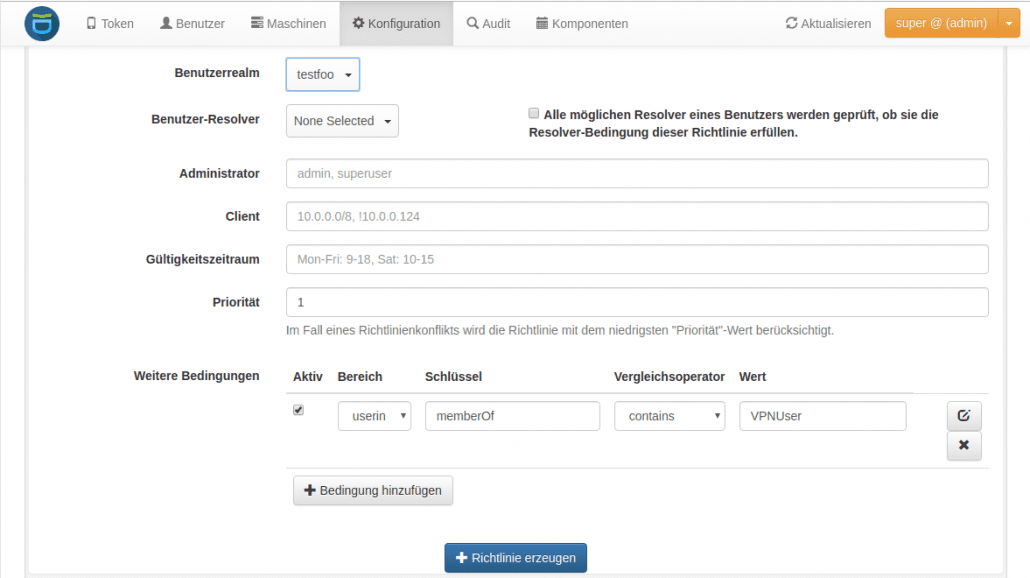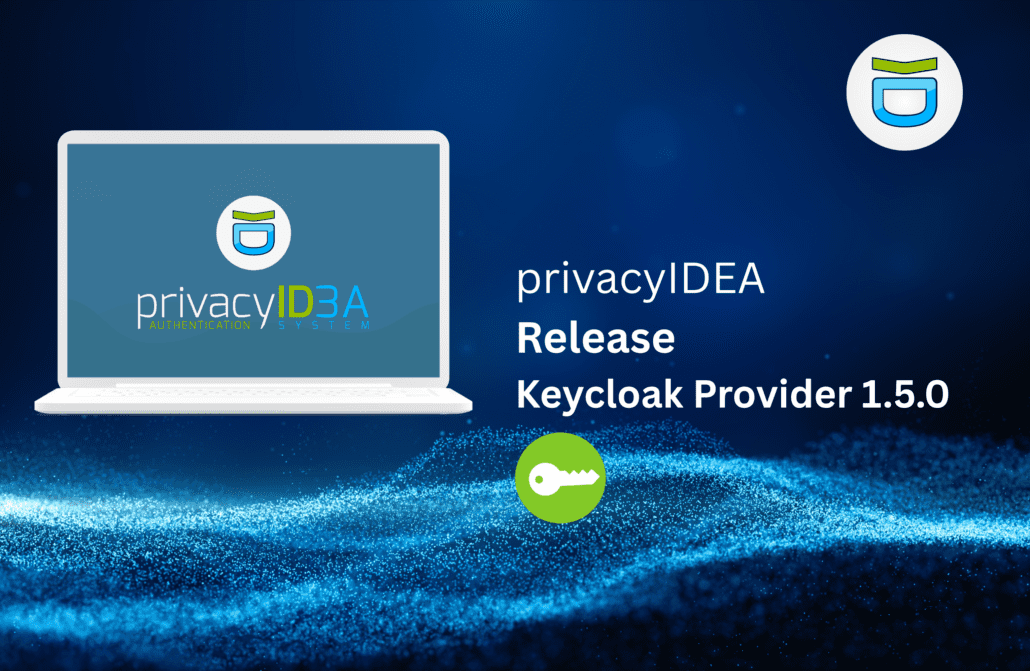NetKnights improves adjustability
Kassel, September 4th 2019. The open source security specialist NetKnights has updated and significantly enhanced its multi-factor authentication software "privacyIDEA". The new version offers more flexibility to define the rights of users – and administrators – more granularly. The migration of proprietary and legacy systems is significantly simplified.
With the version 3.1 of privacyIDEA it is possible to bind the guidelines for user rights to any user parameters, for example LDAP attributes. In addition, an automatic reassignment of already used tokens eases the migration of other 2FA systems once again significantly. The "old" token PIN of a user can also be automatically adopted without the intervention of the IT department.
More flexibility in the definition of policies

With privacyIDEA, the administrator can now define policies dependent on any attributes. Which attributes these are is defined in extensible modules; in version 3.1 the user module is included. That means, the administrator does not have to bind the policies as before to a complete user source, but can generate a different behavior within a user source and/or user group dependent on the respective LDAP attribute of a user by the policies. For example, a company can enforce that users with access to more sensitive data can only log on with a secure token type, or that users who do not have an e-mail address, for example, are denied certain functions.
At the same time, the new privacyIDEA further expands the separation of special read rights for administrators. The policies can be used to define which administrators or helpdesk staff are allowed to read some configurations or not. The administrators’ read rights on tokens have also been refined. They only have access to the keys assigned to them. This makes it even easier to map client scenarios.
Easier migration through automatic token assignment
privacyIDEA allows a smooth migration of proprietary legacy or 2FA systems. This is relevant when manufacturers stop the development of proprietary systems ("end-of-life") or products no longer meet the requirements of users.
After the seed files of the old system tokens have been imported into privacyIDEA, the system can immediately assign the tokens to the user in privcayIDEA during the login attempt. At the same time privacyIDEA can set the old Token PIN automatically, without an employee from the IT or the user having to become active for this.
Many additional extensions
The RADIUS Token now supports Challenge-Response. The push token functionality has been enhanced. For example, an authentication request can wait with the response until the push message is confirmed. This facilitates the integration of the privacyIDEA push token into third-party products.
The TiQR token has been extended by several functions that make it more convenient to use. The function of the TiQR token is comparable to that of a push token. However, the challenge is not sent via the push service of a third-party manufacturer, but via a QR code that the user scans.
The administrator can define a welcome message for the users in the privacyIDEA graphical user interface in order to guide new users better through the rollout process.
Email notifications can now include a variety of new placeholders to better customize the message to the situation.
The privacyIDEA server can force a token in the privacyIDEA Authenticator App to be protected with a PIN.
Event handler events can now also be connected to the WebUI login.
A complete list of the changes can be found in the changelog at Github.
Availability
privacyIDEA 3.1 is now available via the public repositories for Ubuntu 16.04 and 18.04. The software can also be installed on any distribution using the Python Package Index.


